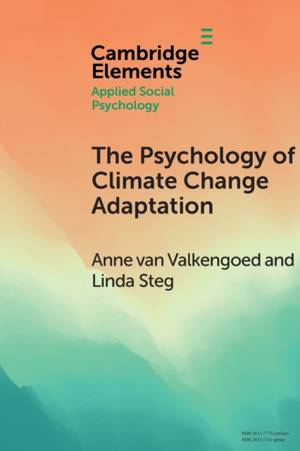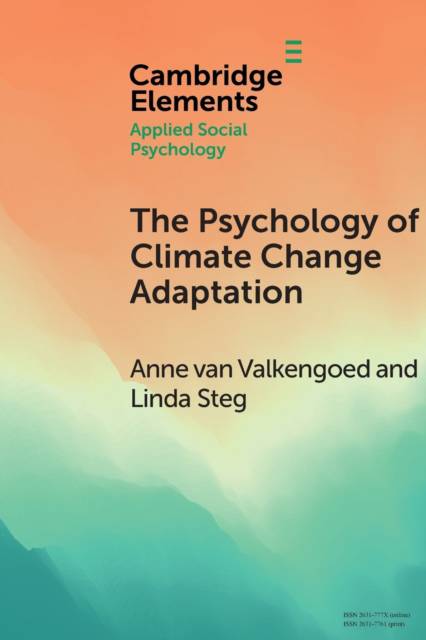
- Afhalen na 1 uur in een winkel met voorraad
- Gratis thuislevering in België vanaf € 30
- Ruim aanbod met 7 miljoen producten
- Afhalen na 1 uur in een winkel met voorraad
- Gratis thuislevering in België vanaf € 30
- Ruim aanbod met 7 miljoen producten
Zoeken
Omschrijving
Why do some people adapt to the risks of climate change, while others do not? This Element provides an in-depth overview of the psychology of climate change adaptation. It begins with an overview of adaptation behaviour and highlights the importance of successful adaptation by individuals and households. Key psychological theories are introduced that can explain adaptation behaviour and the role of a wide variety of motivational variables in adaptation behaviour is discussed, such as risk perception, experiences with climate-related hazards, and perceived responsibility. Next, the authors examine three examples of how this psychological knowledge has been used to develop and test interventions to promote adaptation behaviour in real-world settings. After which, the relationship between climate adaptation behaviour and climate mitigation behaviour are considered and the potential for integrating these bodies of literature is put forward. It concludes with an agenda for future psychological research on climate change adaptation behaviour.
Specificaties
Betrokkenen
- Auteur(s):
- Uitgeverij:
Inhoud
- Aantal bladzijden:
- 75
- Taal:
- Engels
- Reeks:
Eigenschappen
- Productcode (EAN):
- 9781108724456
- Verschijningsdatum:
- 30/05/2019
- Uitvoering:
- Paperback
- Formaat:
- Trade paperback (VS)
- Afmetingen:
- 152 mm x 229 mm
- Gewicht:
- 131 g

Alleen bij Standaard Boekhandel
+ 63 punten op je klantenkaart van Standaard Boekhandel
Beoordelingen
We publiceren alleen reviews die voldoen aan de voorwaarden voor reviews. Bekijk onze voorwaarden voor reviews.











